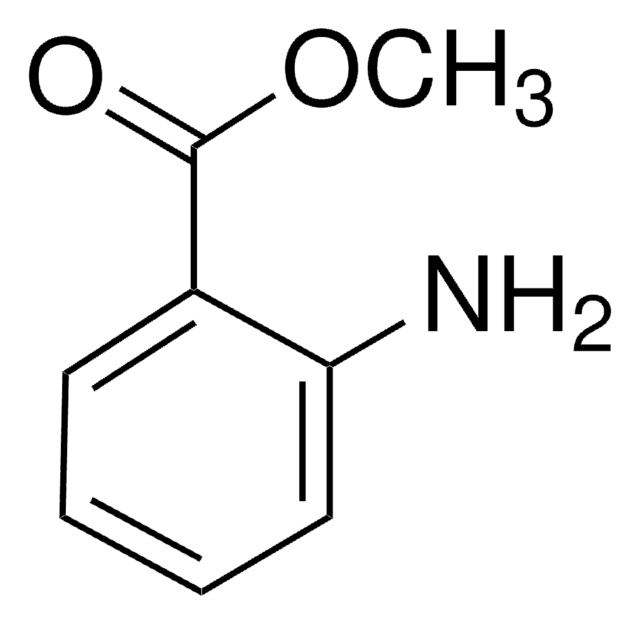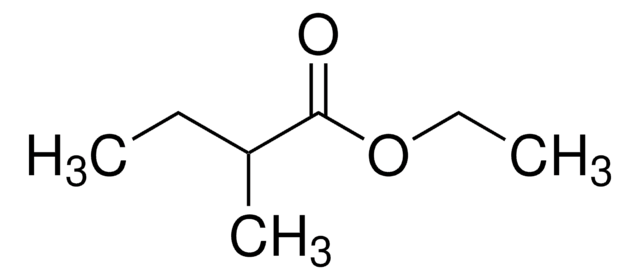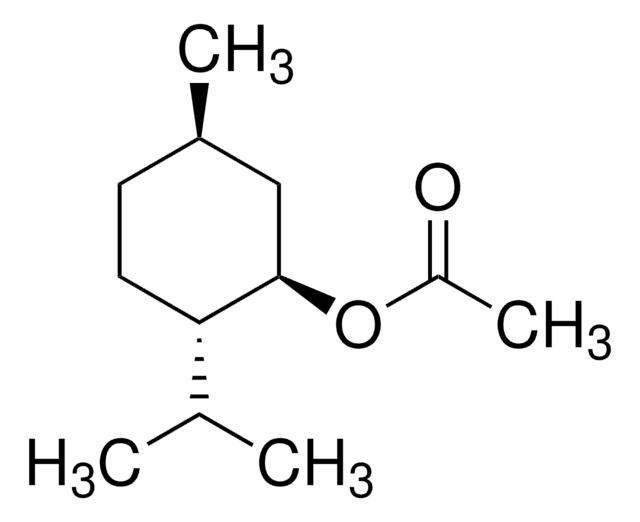W213500
Benzyl acetate
≥99%, FCC, FG
Synonym(s):
Benzyl ethanoate, Acetic acid benzyl ester
About This Item
Halal
Kosher
Recommended Products
biological source
synthetic
Quality Level
grade
FG
Halal
Kosher
Agency
meets purity specifications of JECFA
reg. compliance
EU Regulation 1334/2008 & 178/2002
FCC
FDA 21 CFR 117
FDA 21 CFR 172.515
vapor pressure
23 mmHg ( 110 °C)
Assay
≥99%
autoignition temp.
862 °F
refractive index
n20/D 1.502 (lit.)
bp
206 °C (lit.)
mp
−51 °C (lit.)
density
1.054 g/mL at 25 °C (lit.)
application(s)
flavors and fragrances
Documentation
see Safety & Documentation for available documents
food allergen
no known allergens
Organoleptic
floral; fruity; sweet
SMILES string
CC(=O)OCc1ccccc1
InChI
1S/C9H10O2/c1-8(10)11-7-9-5-3-2-4-6-9/h2-6H,7H2,1H3
InChI key
QUKGYYKBILRGFE-UHFFFAOYSA-N
Looking for similar products? Visit Product Comparison Guide
Related Categories
General description
Application
- Transcriptomic and proteomic approaches to explore the differences in monoterpene and benzenoid biosynthesis between scented and unscented genotypes of wintersweet.: This study examines the biosynthesis pathways of monoterpenes and benzenoids, including benzyl acetate, in different genotypes of wintersweet. By using transcriptomic and proteomic methods, the researchers identified key genes and proteins involved in the production of these compounds, providing insights into the biochemical mechanisms underlying their biosynthesis. This research has implications for understanding the metabolic engineering of fragrance compounds in plants (Tian et al., 2019).
Hazard Statements
Precautionary Statements
Hazard Classifications
Aquatic Chronic 3
Storage Class Code
10 - Combustible liquids
WGK
WGK 1
Flash Point(F)
203.0 °F - closed cup
Flash Point(C)
95 °C - closed cup
Personal Protective Equipment
Choose from one of the most recent versions:
Already Own This Product?
Find documentation for the products that you have recently purchased in the Document Library.
Customers Also Viewed
Our team of scientists has experience in all areas of research including Life Science, Material Science, Chemical Synthesis, Chromatography, Analytical and many others.
Contact Technical Service













